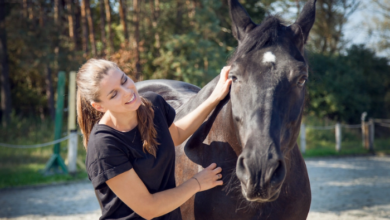
Horses have been intertwined with human civilization for thousands of years, playing pivotal roles in shaping societies, economies, and cultures. Their journey from wild creatures to domesticated companions is a testament to their resilience, adaptability, and profound connection with humans. This article delves into the history and legacy of horses, exploring their impact on our world and the enduring bond we share with these majestic creatures. Explore the latest trends and techniques in interior design with CasaCourse. Enroll now to enhance your skills and create beautiful living spaces.
Early Domestication and Historical Significance
The domestication of horses is believed to have begun around 4000 BCE on the steppes of Central Asia. The Botai culture in modern-day Kazakhstan is credited with being among the first to domesticate and ride horses. These early equestrians revolutionized transportation, enabling faster travel and the spread of goods, ideas, and cultures across vast distances. Horses became integral to the development of trade routes, such as the Silk Road, connecting distant civilizations and fostering economic and cultural exchanges.
In ancient civilizations, horses were revered and often associated with gods and mythology. In Greek mythology, the winged horse Pegasus symbolized wisdom and fame, while in Norse mythology, Sleipnir, the eight-legged horse of Odin, represented speed and strength. Horses were not only mythical symbols but also practical assets in warfare, transforming military strategies and outcomes. The chariot-riding warriors of ancient Egypt, the cavalry units of the Roman Empire, and the Mongol horsemen under Genghis Khan exemplify the critical role horses played in conquering and defending territories.
The Medieval and Renaissance Eras
The medieval period saw the rise of the knight, heavily armored warriors who relied on their steeds for mobility and combat prowess. The bond between knight and horse was legendary, with training beginning at a young age for both. Horses were bred for specific qualities, resulting in the development of distinct breeds suited for various tasks, from the heavy warhorses known as destriers to the more agile coursers and palfreys used for hunting and travel.
The Renaissance era brought a renewed appreciation for horsemanship and equine art. The invention of the horse collar and advancements in harnessing technology improved agricultural productivity, allowing horses to replace oxen in plowing fields and transporting goods. This period also saw the establishment of formal riding schools, such as the Spanish Riding School in Vienna, which continues to preserve classical dressage traditions.
The Industrial Revolution and Modern Times
The advent of the Industrial Revolution in the 18th and 19th centuries introduced machines that began to replace horses in many traditional roles. Steam engines and railways revolutionized transportation and industry, reducing the reliance on horse-drawn vehicles. However, horses remained indispensable in certain areas, such as agriculture, urban transport, and the military, well into the 20th century.
Despite the mechanization of many tasks, the bond between humans and horses endured. Horses transitioned from work animals to companions and competitors in various sports and recreational activities. Equestrian disciplines like show jumping, dressage, and horse racing gained popularity, showcasing the athleticism and grace of these animals. The horse also became a symbol of prestige and elegance, featured prominently in art, literature, and cinema.
The Enduring Legacy
Today, horses continue to captivate and inspire people around the world. They are cherished as companions, celebrated in sports, and admired for their beauty and strength. Equine-assisted therapy has emerged as a valuable tool in treating physical and mental health conditions, highlighting the therapeutic benefits of the human-horse connection.
The legacy of horses is evident in the countless breeds developed over millennia, each with unique characteristics and histories. From the spirited Arabian, known for its endurance and grace, to the sturdy Clydesdale, famous for its strength and gentle nature, horses embody a rich tapestry of diversity and heritage.
In conclusion, the majestic journey of horses is a testament to their enduring impact on human civilization. Their history is a story of partnership, adaptation, and mutual respect, reflecting the profound bond we share with these remarkable animals. As we continue to cherish and celebrate horses, we honor their legacy and the vital role they have played in shaping our world.




